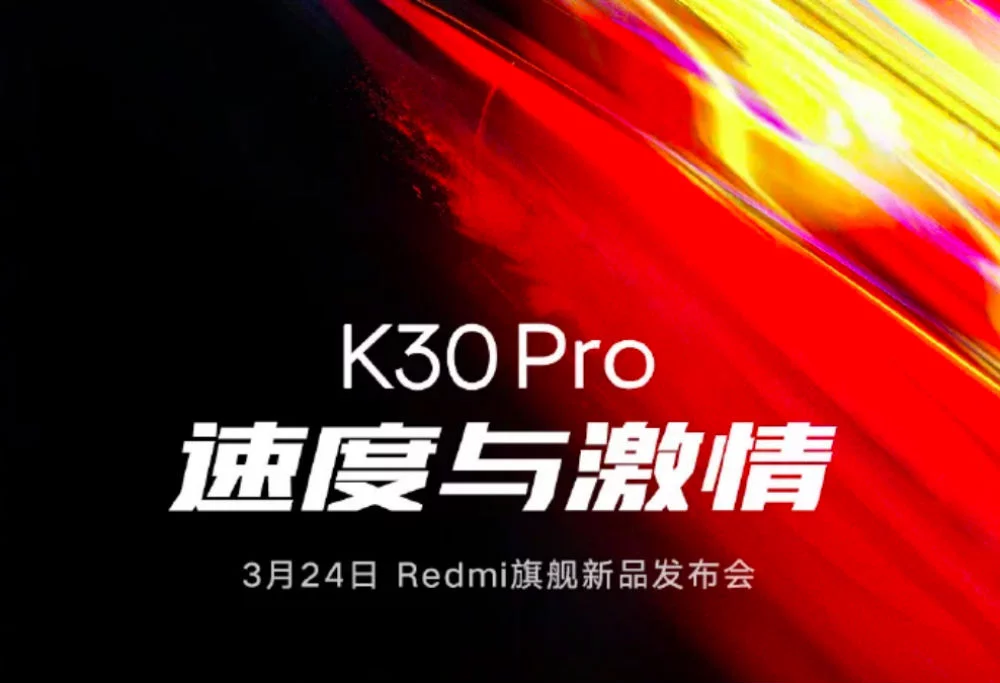The Redmi K30 Pro finally has a launch date. Redmi officially confirmed that its first flagship smartphone for 2020 would be launching in China on March 24 via an online-only event. The Redmi K30 Pro will arrive as a successor to the Redmi K20 Pro and it will pack the latest Qualcomm Snapdragon 865 chipset. Right after the launch in China, Redmi might bring the K30 Pro to India as well. Reports on the web suggest the Redmi K30 Pro will arrive in two models- a standard K30 Pro and a Redmi K30 Pro 5G Zoom Edition with 5G support. It is also said that the Redmi K30 Pro will be the cheapest phone with Snapdragon 865 SoC. Alongside the K30 Pro, Redmi is also expected to announce a new Soundbar as it was spotted on a certification site.

Redmi K30 Pro: What We Know So Far
The Redmi K30 Pro is amongst one of the much-awaited smartphones of 2020. While Redmi is expected to retain the majority of the specs of K30 that was launched in December 2019 and arrived in India as Poco X2, there will be some notable changes since the K30 Pro will be its first flagship smartphone. Going by the rumours, the Redmi K30 Pro is expected to have a Full HD+ screen, unlike the Redmi K30 which featured an IPS LCD panel. The phone might offer 120Hz refresh rate along with a pop-up selfie camera module similar to the Redmi K20 Pro.
Other specs of the K30 Pro include Snapdragon 865 chipset, coupled with 16GB of RAM and up to 256GB of internal storage. Cameras on the Redmi K30 Pro might include a 64MP Sony IMX686 sensor, a telephoto sensor, ultra-wide-angle sensor and a dedicated macro sensor is also expected. The pop-up selfie camera module might house two sensors.
The K30 Pro is also rumoured to have a slightly bigger 4700mAh battery along with 33W fast charging, but again, nothing is confirmed for now. It will be interesting to see whether Redmi includes 5G support even on the standard model. In India, Xiaomi may offer only the 4G variant like the iQOO 3. The K30 Pro will arrive in China on March 24 and there's no update on when the phone will reach India.















